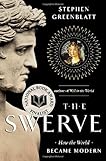 I have eaten the Velveeta cheese intended for the dog; I have re-vivified the frozen peas; this is my dinner. I can feel the drift of my ass across the seat cushions. Did you know that to sit is to kill? When we die, our buttocks renounce the seat. I cannot sustain an interest in anything, not even the hair on my chin. Yesterday, I could. Yesterday I believed I was fair of face and at least destined to ride in a hot air balloon. Funny, that, because I am afraid of heights, no matter how beautiful and bulbuous. When I stand at the top of the cathedral, I do not feel closer to God, merely closer to the casual jointmanship of disgruntled 14th century stone masons. Thus, realism kills the grace. Writing with my discarded sweater set to the side and my one foot encased in a fur slipper, I am sure to be remembered by the ages. I am sure to remember about Norwegians. I am sure to forget what I ought to have remembered. I cannot even sustain the attention to fashion this memory. I shall have to stand and admit surrender.
I have eaten the Velveeta cheese intended for the dog; I have re-vivified the frozen peas; this is my dinner. I can feel the drift of my ass across the seat cushions. Did you know that to sit is to kill? When we die, our buttocks renounce the seat. I cannot sustain an interest in anything, not even the hair on my chin. Yesterday, I could. Yesterday I believed I was fair of face and at least destined to ride in a hot air balloon. Funny, that, because I am afraid of heights, no matter how beautiful and bulbuous. When I stand at the top of the cathedral, I do not feel closer to God, merely closer to the casual jointmanship of disgruntled 14th century stone masons. Thus, realism kills the grace. Writing with my discarded sweater set to the side and my one foot encased in a fur slipper, I am sure to be remembered by the ages. I am sure to remember about Norwegians. I am sure to forget what I ought to have remembered. I cannot even sustain the attention to fashion this memory. I shall have to stand and admit surrender.(Stephansdom, Vienna)










